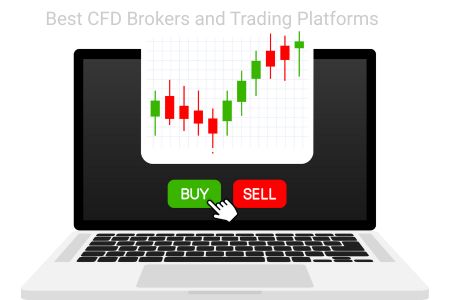
The Path to Successful Trading: Understanding the Best CFD Trading Regulations
Contracts for Difference (CFDs) have revolutionized the trading landscape, offering traders the opportunity to speculate on the price movements of various financial instruments without owning them. However, the proliferation of CFD trading also comes with inherent risks, making regulations critical for the protection of traders. This article explores the best CFD trading regulations across the globe, emphasizing why they are crucial for both new and experienced traders. For more resources on CFD brokers, visit best cfd trading regulations bestbrokercfd.com.
Understanding CFD Trading
CFD trading allows individuals to trade on the price movements of assets like stocks, commodities, and currencies without owning the underlying asset. When you trade CFDs, you enter into a contract with a broker, agreeing to exchange the difference in the asset’s price from when the contract is opened to when it is closed. This flexibility, combined with leverage, makes CFD trading attractive but also increases the potential for significant losses.
The Importance of Regulation
Regulations are designed to protect traders from market volatility, fraud, and unethical practices by brokers. A well-regulated environment promotes fair trading practices, ensures adequate capital requirements for brokers, and implements measures to safeguard clients’ funds. Understanding the regulatory landscape is vital for making informed trading decisions and minimizing risk.

Key Regulatory Bodies for CFD Trading
The world’s leading regulatory authorities implement standards that oversee CFD trading. Some of the most recognized bodies include:
- Financial Conduct Authority (FCA) – UK: The FCA is renowned for its strict regulatory framework ensuring broker integrity and customer protection.
- Cyprus Securities and Exchange Commission (CySEC) – Cyprus: CySEC offers a balance of oversight and accessibility, making it a popular choice for many brokers.
- Australian Securities and Investments Commission (ASIC) – Australia: ASIC maintains a robust regulatory environment, promoting transparency and fairness.
- Monetary Authority of Singapore (MAS) – Singapore: MAS is known for its stringent regulation in finance and investment, fostering a reliable trading ecosystem.
- International Financial Services Commission (IFSC) – Belize: While less stringent than others, IFSC regulations provide a starting point for many brokers.
What Makes Good CFD Regulations?
Effective regulations encompass various aspects that protect traders’ interests. Here are some key characteristics:
- Segregation of Funds: Regulations should require brokers to keep client funds separate from their operational funds, safeguarding against broker insolvency.
- Capital Requirements: Regulatory bodies often impose minimum capital requirements on brokers, ensuring they have adequate financial resources to operate sustainably.
- Transparency: A regulated broker must provide clear and comprehensive information regarding their trading conditions, fees, and services.
- Leverage Limits: To protect inexperienced traders from excessive risk, regulations may impose limits on the amount of leverage that brokers can offer.
- Complaint Resolution: A clear framework for addressing traders’ complaints enhances accountability and ensures issues are resolved promptly.
Global Regulatory Trends in CFD Trading
In recent years, regulatory bodies have been increasingly focused on improving transparency and ethical practices among CFD brokers. New rules have emerged that help protect traders’ interests, such as limitations on leverage and more rigorous requirements for marketing and advertising. The European Securities and Markets Authority (ESMA) has set stringent guidelines across Europe, limiting leverage on CFDs for retail traders. Similar movements are being observed globally as regulators strive to enhance trader protection.

How to Choose a Regulated CFD Broker
When selecting a CFD broker, consider the following factors to ensure compliance with best practices:
- Check Regulatory Status: Always verify that the broker is regulated by a credible financial authority.
- Research Broker Reviews: Investigate third-party reviews and trader feedback to gauge the broker’s reputation.
- Examine Trading Conditions: Understand the broker’s fee structure, spreads, and account types to ensure they align with your trading strategy.
The Role of Technology in Regulatory Compliance
Advances in technology have enabled regulators and brokers to enhance compliance and transparency. Tools such as blockchain and automated reporting systems help maintain accurate records and facilitate audits. Additionally, robust cybersecurity measures are essential for protecting sensitive information, further bolstering trader confidence in regulated environments.
Conclusion
In conclusion, the best CFD trading regulations play a crucial role in creating a secure trading environment. By ensuring that brokers adhere to strict guidelines, traders can confidently engage in the markets, knowing their interests are protected. It’s imperative for traders to conduct thorough research, understand the regulatory landscapes, and choose credible brokers to maximize their trading experience.
